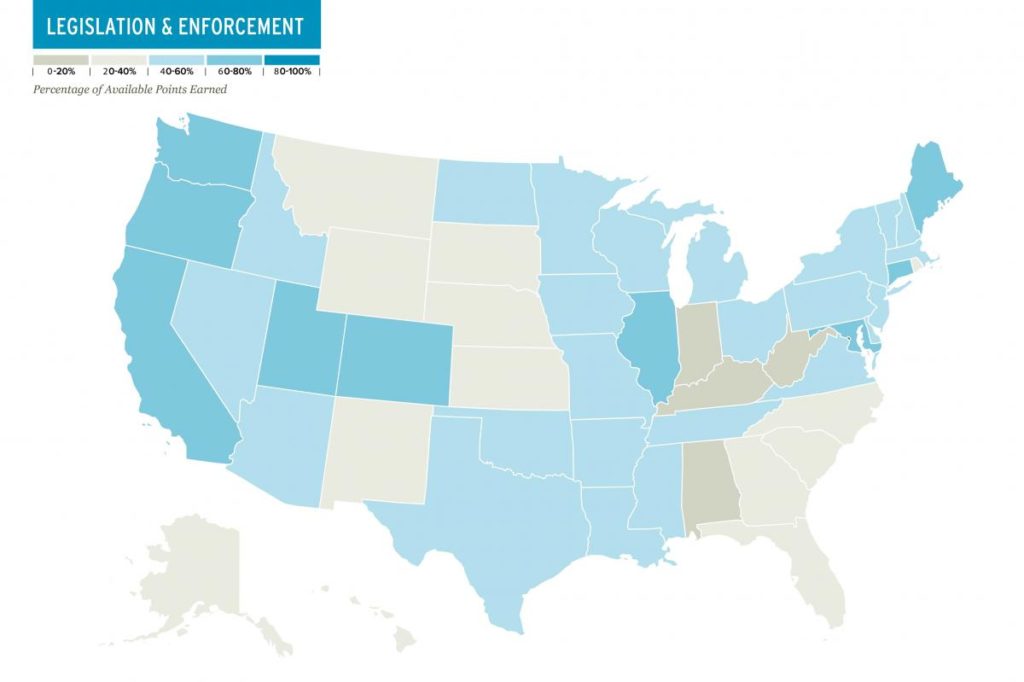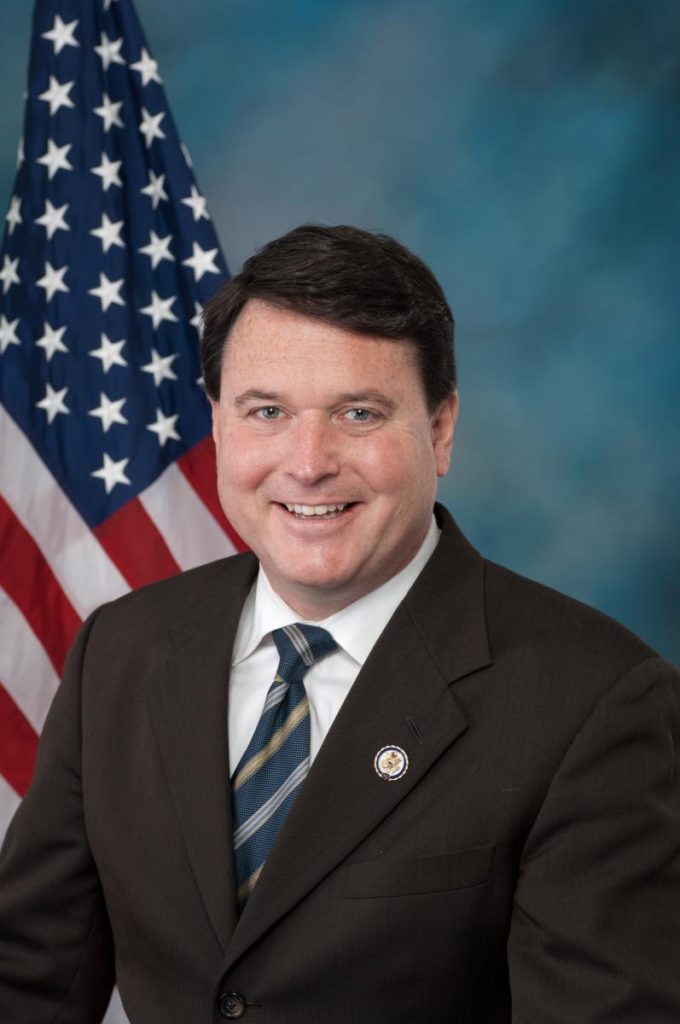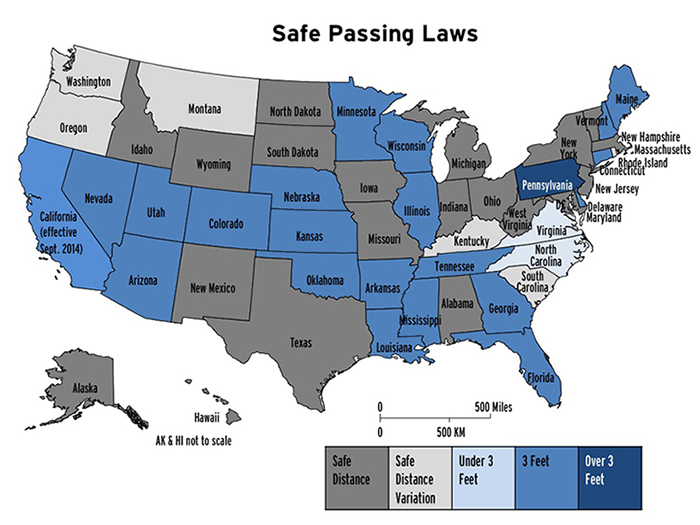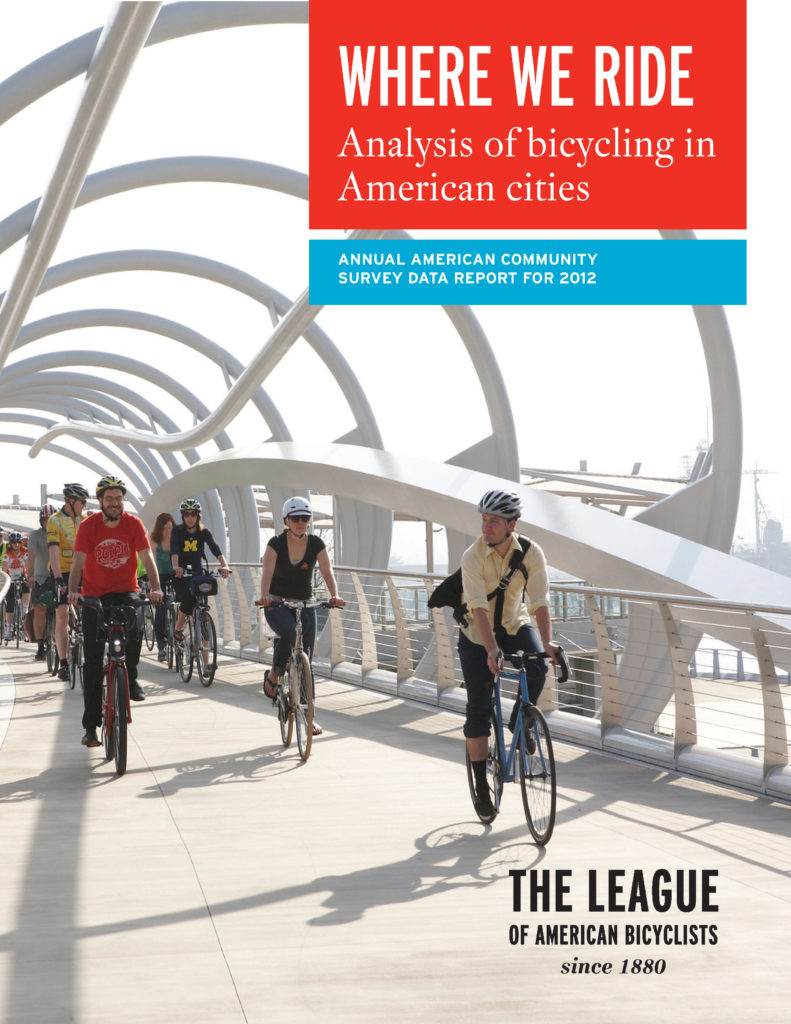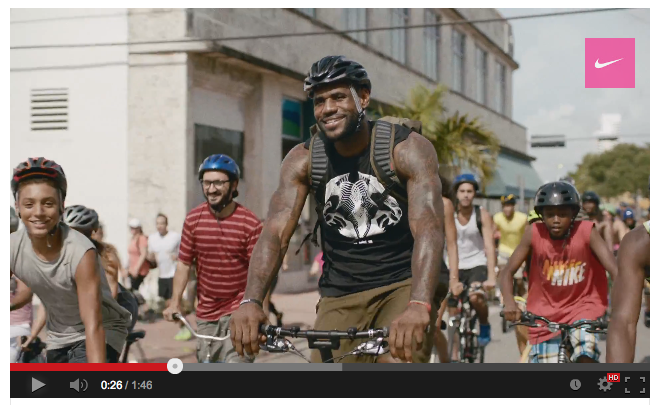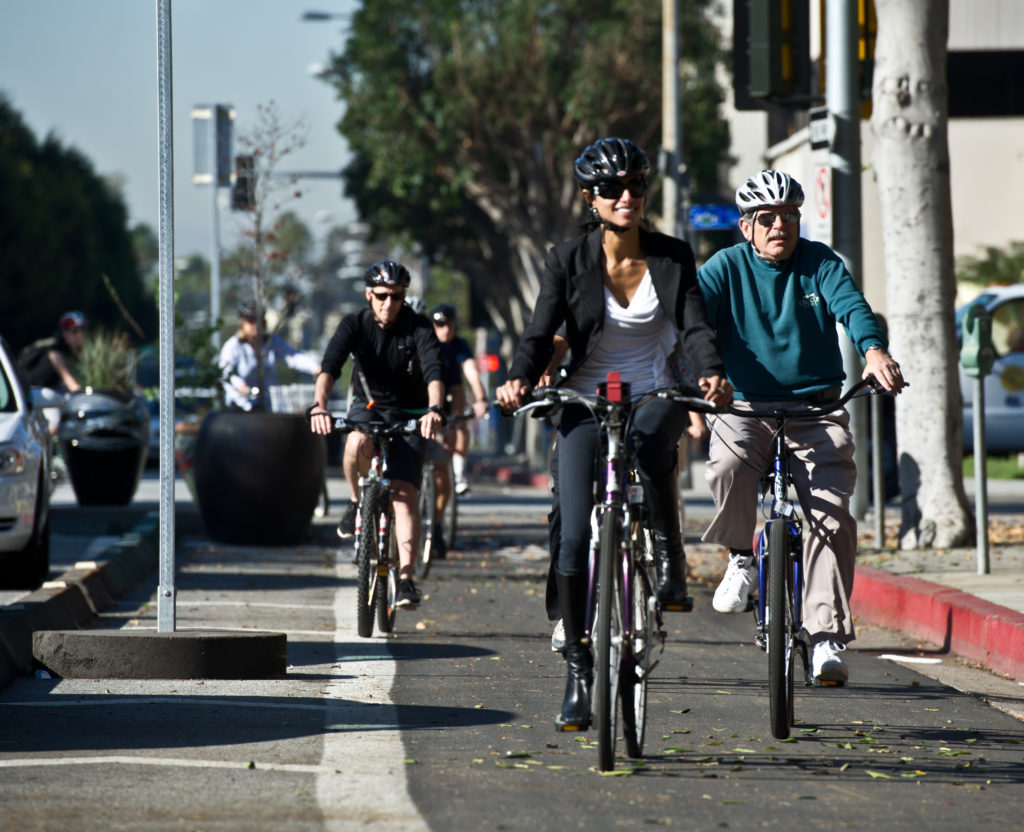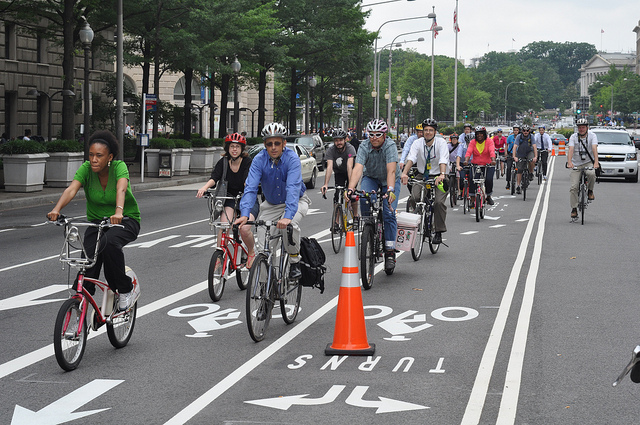Posts by Ken McLeod
BFS: Legislation & Enforcement
Every year the Bicycle Friendly State ranking collects information and grades states on the laws that govern bicyclists and motorists. Many of the questions in this category are on basic laws and states tend to do well on those basic questions. These questions allow us to provide up-to-date information on state laws throughout the nation. We also try to recognize trends in laws due to local advocacy and reward states that are pushing the envelope when it comes to providing legal protection for cyclists.
Read MoreAutomated Cars: Safer for Bikes?
Some automakers predict automated cars will be publicly available as early as 2017. As advanced vehicle technologies take over the driving of cars, what does this technological shift means for bicyclists, pedestrians, and others who share the road with those cars? A new bill in Congress, supported by the League, could ensure that consumer are better informed.
Read MoreUpdated Bike Law Maps, Resources
It’s been a little less than a year since Bike Law University was launched last January. In that time the series has covered 10 categories of law that may affect cyclists and motorists as they share the road. To cap off the year we are updating the sections on Safe Passing laws, Share the Road license plates, Bicycling Under the Influence, Mandatory Helmet laws, and Where to Ride laws.
Read MoreNew Report: Where We Ride
In “Where we Ride: An Analysis of Bicycling in American Cities” we take a look at bicycle commuters throughout the nation, looking at broad trends (such as the three states that have had a more than 100% increase since 2005) and more particular analyses (such as top bike commuter rates in cities of various sizes).
Read MoreNBA Star Leads Miami Masses… By Bike
As the NBA season kicks off today, Miami Heat star Lebron James has a new commercial for Nike that highlights his work ethic and commitment to commuting by bike as he prepares to defend his back-to-back championships and MVP awards. He’s not alone in MIA…
Read MoreACS: Bike Commuting Continues to Rise
UPDATED: We’ve updated our data list for the 70 largest U.S. cities, including share of bicycle commuters and percent change. Download it here. According to the ACS, in 2012 about .64% of commutes are made by bicycle, which represents an almost 10% increase from 2011. This is the largest year-on-year increase since 2007-2008, showing that people are choosing to use their bicycles for transportation not just in response to economic crisis, but because bicycles are leading the way to recovery.
Read MoreBike Law University: Idaho Stop
Idaho passed its law allowing bicyclists to treat stop signs as yield signs and red lights as stop signs in 1982. Since that time many bicycling advocates have attempted to spread this law to other states, and have been met with strong resistance. These efforts continue, as recently as this summer, and the strides that cyclists have made since the early 80s have not lessened the calls for this reform.
Read MoreAustin Ramps Up Enforcement of Passing Law
Austin, Texas, is “putting a bite” in its 3-foot passing law. The City of Austin passed a 3-foot law back in 2009, but — like many localities and states — was slow to enforce the law. This year, as part of Austin’s celebration of Bike Month, the City of Austin police department began an enforcement effort using undercover police officers on bikes.
Read MoreBike Law University: Riding Under the Influence
Bicycling under the influence laws are very rare. In most cases, BUI laws differ from Driving Under the Influence (DUI) laws by providing for less severe penalties and by not affecting a person’s driver’s license. In this post, we explore BUI laws and how they’re implemented across the country.
Read MoreBike Law University: Mandatory Use of Separated Facilities
In the 1970s, mandatory use laws of some sort existed in 38 states. Since that time many cycling advocates and state legislatures have worked together to repeal many of those laws. Today there are 17 states with some type of mandatory use law and only 11 of those states have laws that apply in most circumstances.
Read More